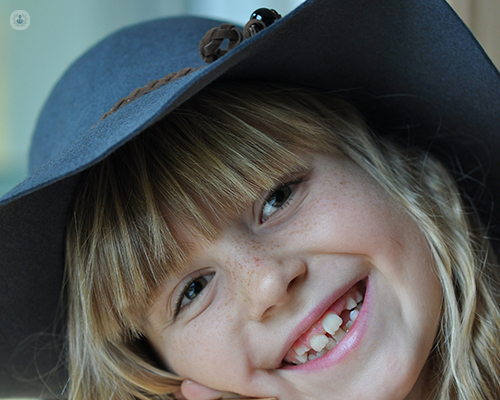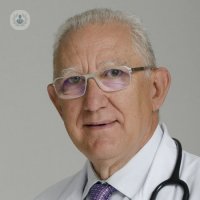How to treat allergies in children
Written by:What are allergies?
When a father comes with his son to the consultation, the first thing he asks is what is an allergy ?, and it is something very simple to explain: they are totally harmless substances for most of the population, but, in certain children, they are more sensitive, provoke reactions, antibodies, against that substance. This causes reactions in the child such as asthma, rhinitis or skin problems.
What are the allergens that most affect children?
The allergens will depend a little on how old the child is. For example, in infants , especially are the foods, and the main one of all the cow's milk. Then we have other food allergens that are provoked many times by the very early introduction of them. Parents have to be guided by the pediatrician to introduce the feeding. There are foods, such as nuts or strawberries, which can cause allergic reactions. When the child is older , we get into different problems such as house dust mites, pollens or molds , which cause different allergic reactions in the child such as asthma or rhinitis.
How to know if a child has an allergy or is a simple cold?
This is the million dollar question and the one that people who come to the consultation always do. It is relatively easy. The catarrhal pictures of a child are always in winter, it is a child who has his cough, has his sneezing and has his fever or fever, and the duration of the process is usually very short: few days because they are always caused by viral pictures. The allergic problem has coughing, sneezing, itchy nose, watery eyes and tend to be more in times of pollens, spring times .

How is an allergy diagnosed?
Well we do it with two different methods, one very easy that is what we do in the consultation usually with children, is what is called prick test , and consists of applying a series of drops with different substances of which we suspect that the child he is allergic to his little arm and with a small prick, which does not even make blood, is scraped on the child's skin, he waits a few minutes and after that time he sees if there is a reaction or not. The second test is what we do through the child's blood and it is called IGE. specific, and the procedure is the same: an IGE is requested. specific for house dust mites, for cow's milk proteins or those substances that we think the child may be allergic to, and analyzed.
Is a child with allergic parents more predisposed to allergies?
Really if. When we have two parents who are allergic the possibility that their son is also allergic is between 50 and 80%. If only one of the parents is allergic, the predisposition drops to between 20 and 40%. But keep in mind that up to 15% of children suffer from allergies without their parents being allergic.
Is there a specific treatment to combat them?
Yes, we do have treatment and the children are cured. The treatment will be different depending on what the child has. For example, if it is a child who has an allergy to cow's milk, we make an exclusion diet and use a Nutramigen LGG type hydrolyzate, which is a highly hydrolyzed milk , and the child's problem usually disappears in a year. If the allergy is due to house dust mites or some pollen or mold, then the treatment is different. You can use, for example, immunotherapy , what people commonly call allergy shots, which consists of a puncture in the arm or droplets under the tongue that are put on every day. Lately for allergies to pollens have come some pills that make the patient's allergy disappear. Thank God with any treatment of these the allergy is permanently cured .


